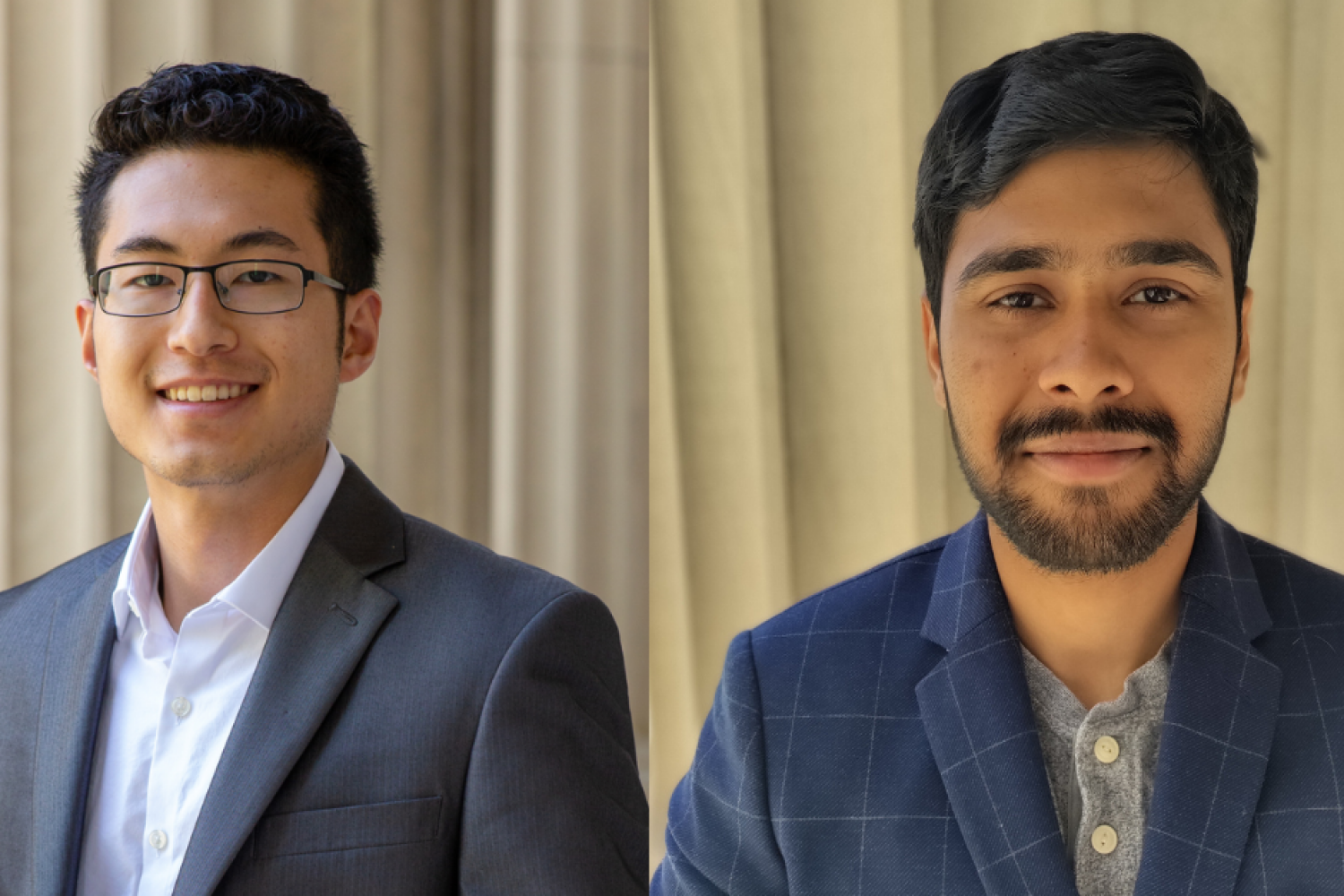Two MIT PhD students awarded J-WAFS fellowships for their research on water
Two MIT PhD students awarded J-WAFS fellowships for their research on water MIT News


Sustainable Development Goals: MIT J-WAFS Fellowships

Introduction
Since 2014, the Abdul Latif Jameel Water and Food Systems Lab (J-WAFS) has been conducting interdisciplinary research to address the world’s most urgent water and food security challenges in line with the Sustainable Development Goals (SDGs). In 2017, J-WAFS established the Rasikbhai L. Meswani Water Solutions Fellowship and the J-WAFS Graduate Student Fellowship to support outstanding MIT graduate students in their research endeavors to improve global water and food systems.
2024-25 Fellowships Recipients
J-WAFS has recently awarded the 2024-25 fellowships to Jonathan Bessette and Akash Ball, two MIT PhD students dedicated to addressing water scarcity through enhanced desalination and purification processes. This research is crucial as climate change continues to deplete the world’s freshwater supply, leaving one-third of the global population without access to safe drinking water. Bessette and Ball are focused on designing innovative solutions to enhance the resilience and sustainability of global water systems. J-WAFS will provide each recipient with funding for one academic semester to support their research and related activities.
2024-25 Rasikbhai L. Meswani Fellowship for Water Solutions
The Rasikbhai L. Meswani Fellowship for Water Solutions is a doctoral fellowship for students pursuing research related to water and water supply at MIT. This fellowship is made possible by Elina and Nikhil Meswani and family.
- Jonathan Bessette: Bessette, a doctoral student in the Global Engineering and Research (GEAR) Center within the Department of Mechanical Engineering at MIT, is focusing on developing low-cost, deployable, community-scale desalination systems for humanitarian crises. His research aims to provide sustainable solutions for inland groundwater aquifers in remote and developing areas that lack reliable centralized power and water systems.
2024-25 J-WAFS Graduate Student Fellowship for Water and Food Solutions
The J-WAFS Graduate Student Fellowship is supported by the J-WAFS Research Affiliate Program, which allows companies to engage with MIT on water and food research. The current fellowship support is provided by two J-WAFS Research Affiliates: Xylem, a leading U.S.-based provider of water treatment and infrastructure solutions, and GoAigua, a Spanish company specializing in digital transformation in the water industry.
- Akash Ball: Ball, a doctoral candidate in the Department of Chemical Engineering at MIT, is researching novel functional materials for energy-efficient ion separation membranes with high selectivity. His work focuses on addressing water distress caused by climate change, water pollution, and scarce freshwater reserves. Ball aims to develop advanced membranes using metal-organic frameworks (MOFs) to improve applications such as water desalination, battery recycling, and removal of heavy metals from industrial wastewater.
Conclusion
The J-WAFS fellowships awarded to Bessette and Ball highlight their potential to bring transformative solutions to global water challenges. Their research aligns with the Sustainable Development Goals and contributes to the pursuit of a sustainable future with improved water and food systems.
SDGs, Targets, and Indicators
-
SDG 6: Clean Water and Sanitation
- Target 6.1: By 2030, achieve universal and equitable access to safe and affordable drinking water for all.
- Indicator 6.1.1: Proportion of population using safely managed drinking water services.
- Indicator 6.1.2: Proportion of population using safely managed sanitation services.
-
SDG 7: Affordable and Clean Energy
- Target 7.1: By 2030, ensure universal access to affordable, reliable, and modern energy services.
- Indicator 7.1.1: Proportion of population with access to electricity.
-
SDG 9: Industry, Innovation, and Infrastructure
- Target 9.5: Enhance scientific research, upgrade the technological capabilities of industrial sectors in all countries, in particular developing countries, including, by 2030, encouraging innovation and substantially increasing the number of research and development workers per 1 million people and public and private research and development spending.
- Indicator 9.5.1: Research and development expenditure as a proportion of GDP.
Analysis
1. Which SDGs are addressed or connected to the issues highlighted in the article?
The issues highlighted in the article are connected to SDG 6: Clean Water and Sanitation, SDG 7: Affordable and Clean Energy, and SDG 9: Industry, Innovation, and Infrastructure.
2. What specific targets under those SDGs can be identified based on the article’s content?
Based on the article’s content, the specific targets that can be identified are:
- Target 6.1: Achieve universal and equitable access to safe and affordable drinking water for all.
- Target 7.1: Ensure universal access to affordable, reliable, and modern energy services.
- Target 9.5: Enhance scientific research, upgrade technological capabilities, and increase research and development spending.
3. Are there any indicators mentioned or implied in the article that can be used to measure progress towards the identified targets?
Yes, there are indicators mentioned or implied in the article that can be used to measure progress towards the identified targets:
- Indicator 6.1.1: Proportion of population using safely managed drinking water services.
- Indicator 6.1.2: Proportion of population using safely managed sanitation services.
- Indicator 7.1.1: Proportion of population with access to electricity.
- Indicator 9.5.1: Research and development expenditure as a proportion of GDP.
SDGs, Targets, and Indicators
| SDGs | Targets | Indicators |
|---|---|---|
| SDG 6: Clean Water and Sanitation | Target 6.1: Achieve universal and equitable access to safe and affordable drinking water for all. | Indicator 6.1.1: Proportion of population using safely managed drinking water services. |
| SDG 6: Clean Water and Sanitation | Target 6.1: Achieve universal and equitable access to safe and affordable drinking water for all. | Indicator 6.1.2: Proportion of population using safely managed sanitation services. |
| SDG 7: Affordable and Clean Energy | Target 7.1: Ensure universal access to affordable, reliable, and modern energy services. | Indicator 7.1.1: Proportion of population with access to electricity. |
| SDG 9: Industry, Innovation, and Infrastructure | Target 9.5: Enhance scientific research, upgrade technological capabilities, and increase research and development spending. | Indicator 9.5.1: Research and development expenditure as a proportion of GDP. |
Copyright: Dive into this article, curated with care by SDG Investors Inc. Our advanced AI technology searches through vast amounts of data to spotlight how we are all moving forward with the Sustainable Development Goals. While we own the rights to this content, we invite you to share it to help spread knowledge and spark action on the SDGs.
Fuente: news.mit.edu

Join us, as fellow seekers of change, on a transformative journey at https://sdgtalks.ai/welcome, where you can become a member and actively contribute to shaping a brighter future.







